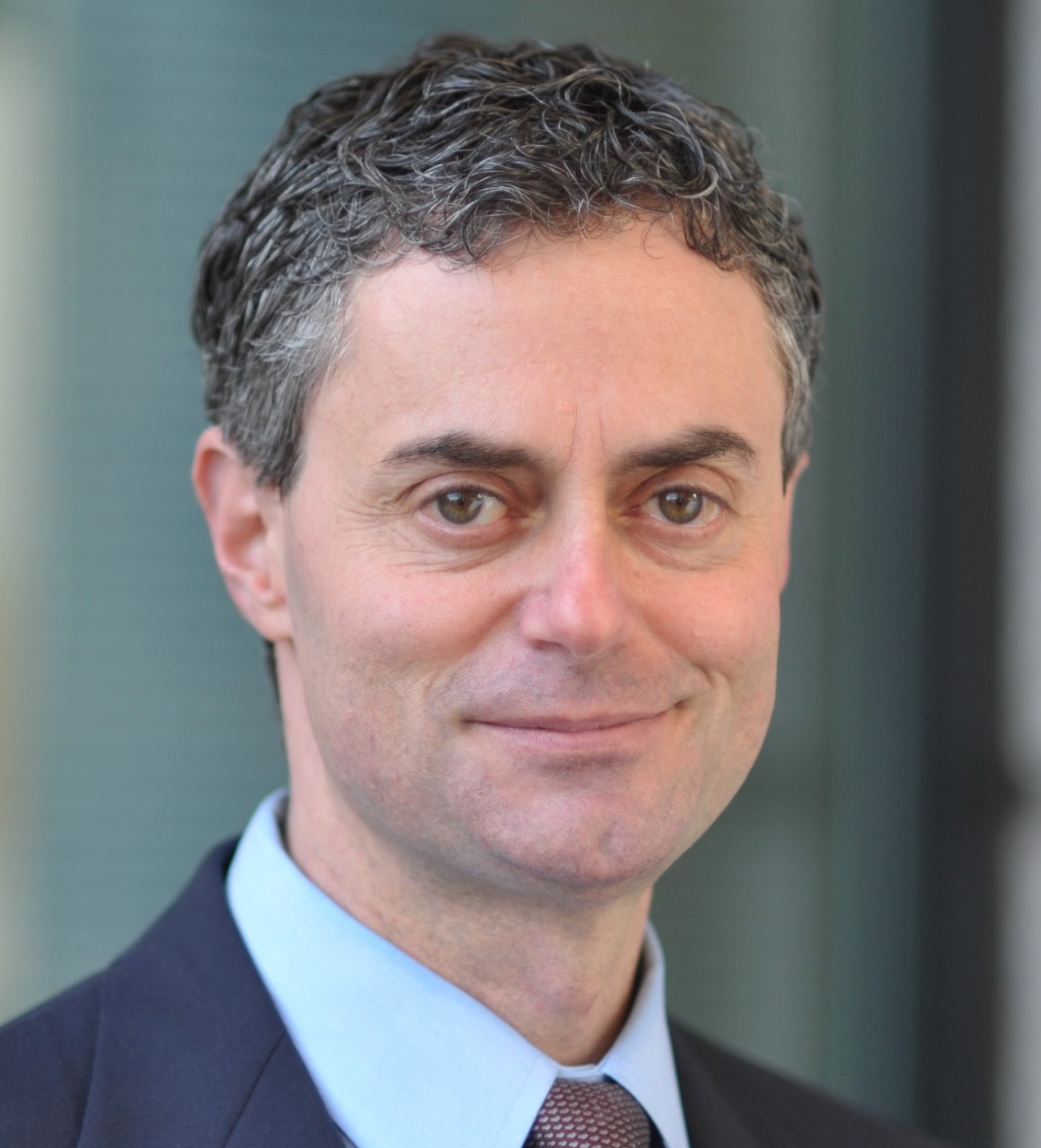Barak Gaster
Welcome to Collective Conversations, a series of discussions aimed at highlighting people and groups working to improve health through better health care systems. I’m your host, Joy Lee, a program manager for the Value and Systems Science Lab led by Dr. Joshua Liao who is a physician and Associate Chair for Health Systems in the Department of Medicine at the University of Washington.
In today’s conversation, you'll hear from Dr. Barak Gaster.
Dr. Gaster's work over the last few years in developing better ways to evaluate cognition in primary care settings is truly inspiring and increasingly important. It was a pleasure hearing from Dr. Barak Gaster and I trust you'll like it as well.
Joy Lee: Before we dive into more recent work, would you tell us more about how and why you developed your interest, and now expertise, in dementia?
Barak Gaster: I’ve been a primary care provider at the General Internal Medicine clinic for just over 20 years now and it was about 7 years ago that it really struck me that the number one issue that I was struggling with the most, and then I saw my colleagues next to me struggling with the most, was dementia. And when my patients have it, how could I best help them and help their families manage it, and just really zeroing-in on this disease as being somewhat unique in that it is such a serious illness, which is slowly progressive, and really requires a careful, patient-centered approach because its identification and long-term management is so tricky. And so, I started devoting more of my time to studying dementia, specifically, from a primary care point of view – how do we do a better job of evaluating it, and how can we do a better job of helping patients and families manage it?
JL: For those who may not know the difference, could you also clarify what it means when people say Dementia vs Alzheimer’s - why are they separate terms?
BG: Right. That gets to the whole complexity of the human brain and how much there is still that we don’t fully understand of this thing that we call dementia. In some ways, dementia is very clear-cut, it’s this very common thing that happens to many, but not all, people as they reach their 70’s and 80’s. It’s described as a progressive neural degeneration process where people gradually lose cognitive ability to think and remember, to recognize people, to understand what’s happening around them. So that is dementia, which is this easily identifiable thing that happens to people. But then, Alzheimer’s is one of the number of diseases that we know that causes this neural degeneration and is by far the most common cause of dementia, which is Alzheimer’s disease.
JL: For the last couple of years, with funding from the CDC, you’ve led the Cognition in Primary Care Program, the goal of which is to facilitate detection of cognitive impairment in primary care settings and improve care for people with dementia. Can you tell us about the work of developing this CPC model over the last few years?
BG: It’s been a really exciting past two years. Initially, I was doing most of this work on my own in close collaboration with great people at the Memory and Brain Wellness Center at Harborview. But I was more or less a one-person show. It was about 2 years ago now, right at the start of the pandemic, under the initiative of Annette Fitzpatrick in Family Medicine, that we got funding from the CDC to build a whole team to take this on to figure out how to develop a streamlined way for PCPs to evaluate cognitive concerns, to diagnose dementia, to help patients and families navigate the stages of the disease, and work in a more effective partnership way with specialists in neurology and psychiatry. But really identifying what everybody is already operationally working by, that this is in so many ways a primary care disease. And so it was Annette who really connected me to others in primary care with expertise in geriatrics. And the main person who has just been so incredible to work with is Jackie Raetz, who’s a fabulous family doc and geriatrician in the Family Medicine Clinic at Harborview. Through the two years of the pandemic, we’ve been amazingly successful at building out an education series for primary care which is the Cognition in Primary Care Program, which also includes an in-clinic intervention that we’ve been able to successfully show works at two of the UW Medicine Primary Care clinics in Shoreline and Kent-Des Moines.
JL: More recently, you’ve received funding from the Davos Foundation to scale up the CPC model to all 16 clinics in the UW Medicine Primary Care Network. This opportunity to scale is something that I think many people and groups who work on health systems issue aspire to do. What are 2-3 key things that you're seeing in this next phase that you’d highlight for others who want to do something similar by scaling up their programs at the systems level?
BG: The biggest challenge is really just how busy we all are in our work. And especially in our clinical work. That the time crunch and in just getting through clinical days is just hard. There are just so many competing things that everybody thinks of as high priorities that we really need to get to right away.
I think the main focus is really making the case that at some fundamental level, it’s all about improving the quality of the care that we are giving. This is a disease that is already a major struggle for us, that we struggle with, that our patients struggle with, that the health system struggles with. And that is only going to be getting worse in the years to come with the aging of the baby boom cohort. So, there is just this immense need to try and figure out a way to make it better now, so when it doubles in its prevalence, we are ready to do a better job. So, engaging with the health system at that quality improvement level is really the win-win for everybody that is really bringing together the clinical side and the research side and the IT side to make it work.
JL: Take us to the end of the Davos Foundation work. What work comes next after that? What’s the bigger vision you have or want to see in this field?
BG: I think this is a struggle that is not just a primary care problem or a UW Medicine problem. It is a nationwide problem that health systems everywhere are facing and are going to be facing more and more. So we’re aiming to come up with a really good primary care focused solution, that should have a lot of appeal across the country and be the kind of thing that many people want. So, I think it has potential for wider dissemination. I think if we can really put the Cognition in Primary Care model together as a workable package that other places can easily implement, I see it having a lot of potential to be adopted by a wide variety of places and of health systems around the country.
JL: Even though this series is focused on systems issues, we like to connect topics back to as many people as possible, including those who may not be in clinical medicine or systems experts. In this case, addressing dementia is recognizing that conversations about it occur outside of clinical settings between patients and their loved ones. Is there any advice you can share on how all of us, regardless of our professional backgrounds, can more meaningfully discuss brain health and the warning signs of dementia with loved ones?
BG: All along and over the last seven years that I have been focused in this area, the number one obstacle, the barrier to get past is just how important it is to destigmatize talking about dementia and destigmatize having conversations about it. To take the disease out of the shadows. Right now, it is something that everyone is just so afraid of addressing or afraid of talking about. And I think it does a lot of harm to people getting good care. So, it’s something that we can talk about, and we should slowly try to get used to being more comfortable talking about it as a way to improve the care for people with dementia.
JL: Part of that is how can we start to have more of those conversations. Do you have any advice on how we can start to do that?
BG: It really is so much about how we really can make people’s lives with dementia better by talking about it. We are all hoping for a highly effective disease modifying medication that is hopefully going to come along. But no matter how long it takes to get there, there are so many things that we can do right here, right now to make peoples’ with dementia’s lives better just by identifying things that we can do right now to preserve brain health – by treating sleep apnea; by encouraging people to wear hearing aids more, to drink less alcohol, to take fewer sleeping pills; by improving advance care planning, improving filling out advance directives to improve end of life care. Those are all just concrete things we can do right now that we can’t do if we are not talking about this disease.
If I were to boil this down to the one thing that talking about this disease can make it better: it is about bringing families into the conversation. It is to increase the support and understanding that people with dementia need so, so much. If we are not talking about it and they are isolated, they are not going to get good care. So really talking about this disease and bringing families into the conversation is just fundamental to improving people’s lives.
JL: Thank you so much Dr. Barak Gaster for your work and intense focus, and these incredible solutions and process improvements you’re making for our health care system.
BG: Thanks for having me.




